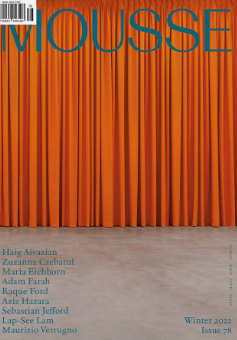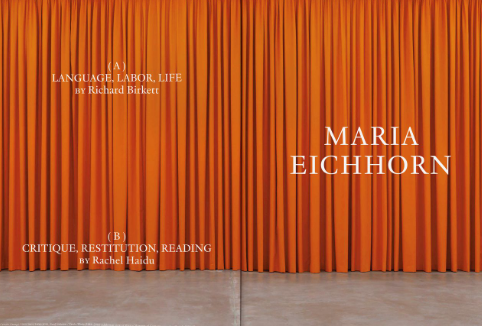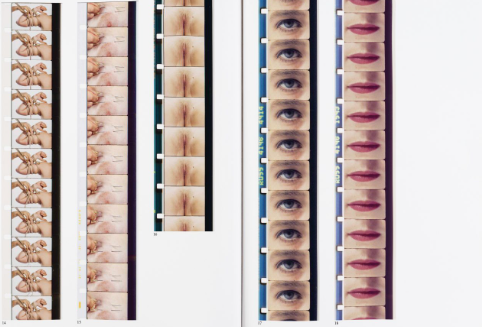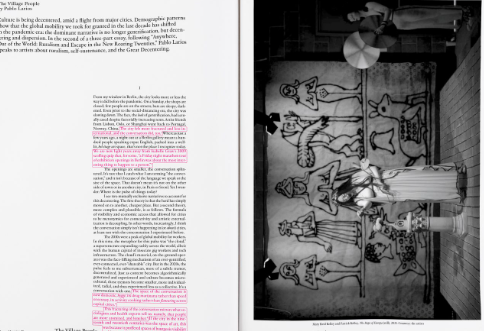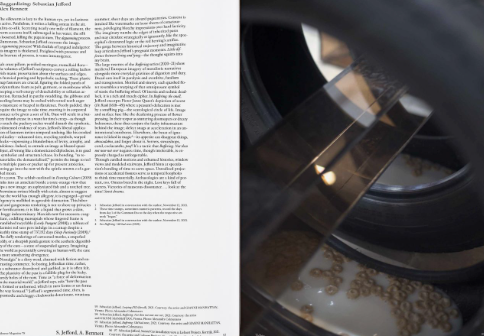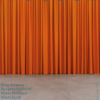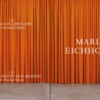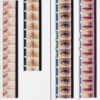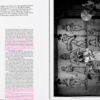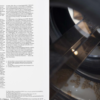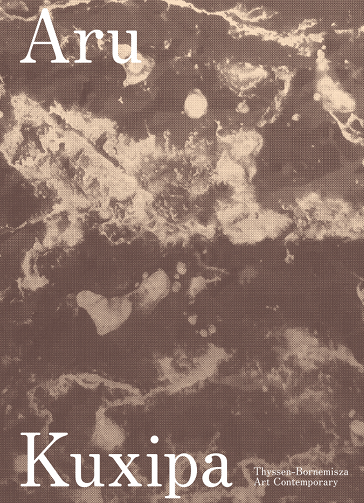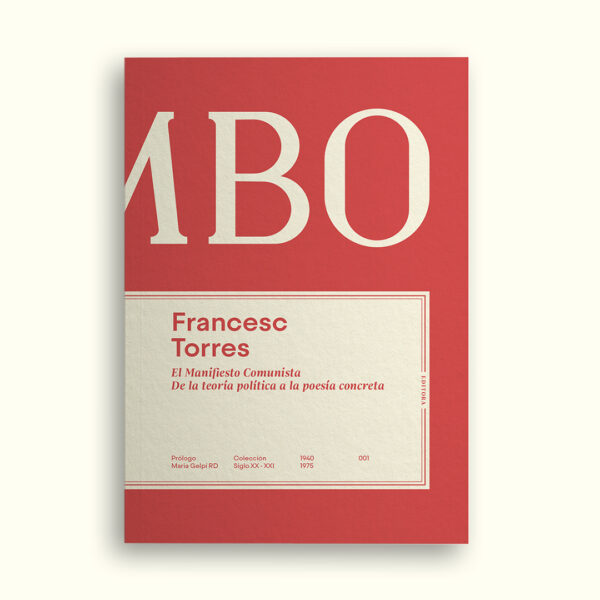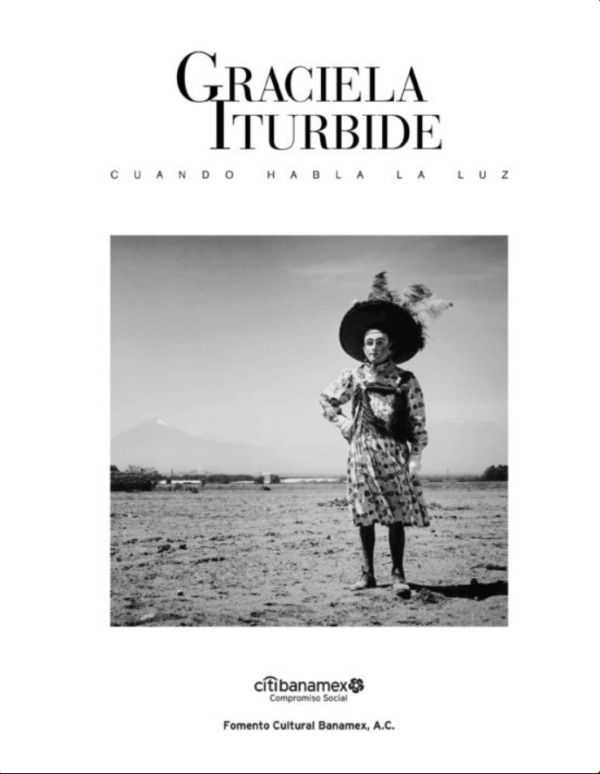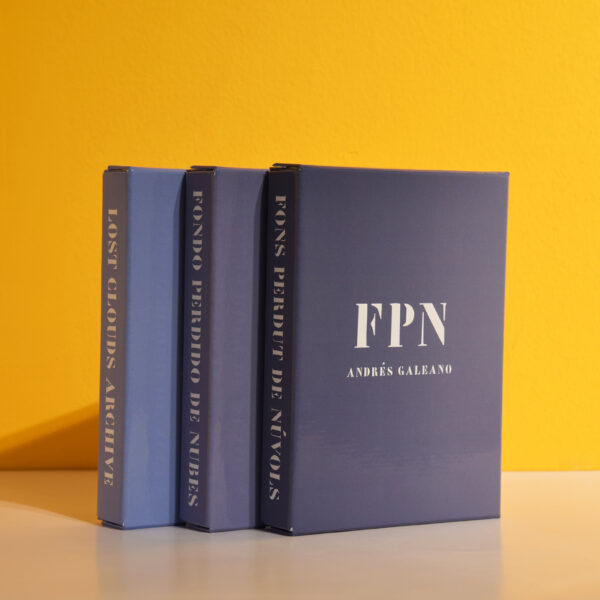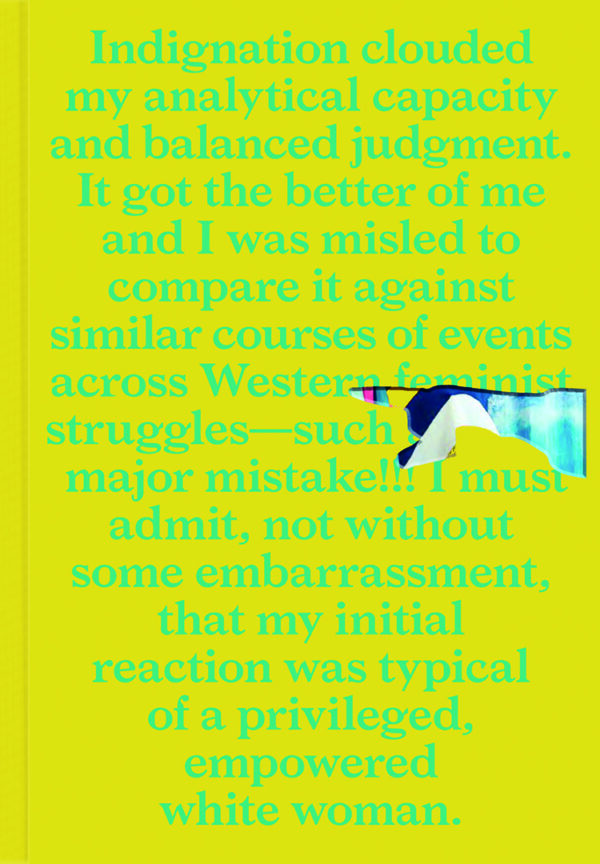In this issue:
Focus on: Maria Eichhorn
Language, Labour, Life
Critique, Restitution, Reading
Anticipating her representation of Germany in the upcoming Venice Biennale, Mousse 78’s “Focus on” is dedicated to Maria Eichhorn. Richard Birkett analyzes Eichhorn’s troubling of the line between the temporality of art’s production and the context of its presentation, centering on the complexity of language as a system of order and lack, presence and absence. Rachel Haidu explores the ways in which Eichhorn’s work departs from the first generation of institutional critique practitioners, proposing a reflection on experiences of intimacy and efforts toward living together.
The Village People
Demographic patterns show that the global mobility we took for granted in the last decade has shifted in the pandemic era: the narrative is no longer gentrification, but decentralization and dispersion. In the second installment of a three-part essay, Pablo Larios speaks to artists about ruralism, self-sustenance, and the Great Decentering.
The Voice Imitator
“At the parent-teacher conference, they told his mother, a diplomat, that he liked to solve all conflicts using rocks, paper, scissors. No one had yet come up with a better, more effective idea.” In the wake of Thomas Bernhard’s The Voice Imitator, Stephanie LaCava delivers incisive, fictional tales portraying bizarre accounts, circumstances, chronicles, and the like.
Ten Stories
“Days I cannot find the words. A dereliction. Other days the words come pouring out of me. Catch them in a plastic cup. Days when I don’t permit myself to laugh, because the world is funny enough without my soundtrack.” Travis Jeppesen pens an assortment of lyrical, confessional, and terse—not to mention steamy—fictional gems.
To Know Which Way the Wind Blows
Aziz Hazara’s work reflects a childhood spent in a conflict zone—the enduring vestiges of the US and Soviet occupations. Rahel Aima ponders the Afghan-born artist’s research and the thread that runs through his whole production: the relationship between the individual and the collective in terms of both national, regional, and ethnic identity and generational trauma.
Power Plays: High Stakes in the Art of Haig Aivazian
Haig Aivazian’s practice delves into the serious and often surprisingly quiet business of critique, condemnation, and emancipation. Kaelen Wilson-Goldie describes the works’ exposure of connections between high-tech start-up culture, the military, and urban policing. Aivazianrevives ancient myths, stubborn dreams, and old ways of doing things to find concrete strategies for living in the present.
Devil, Vanity, Pop
Raque Ford’s practice fuses abstraction, minimalism, and narrative fiction. In conversation with Amber Esseiva, the artist delves into the autobiographical roots of her work; the magnitude of language and narratives, and their appropriation; her attachment to specific words and symbols; her obsession with pop personas and Instagram bots; and her craze for Plexiglas.
This Figuring: Some Remarks on Today’s Painting Crazes
In a speculative slant taking Nicole Eisenman and Kerry James Marshall as forebears of two trends in US contemporary art, Dieter Roelstraete hints at how American art is once again awash in figurative painting. “Figuration is big business—and so too is the business of representing. What painters are interested in painting above all else right now are people: others, selves, subjectivities. Identities.”
